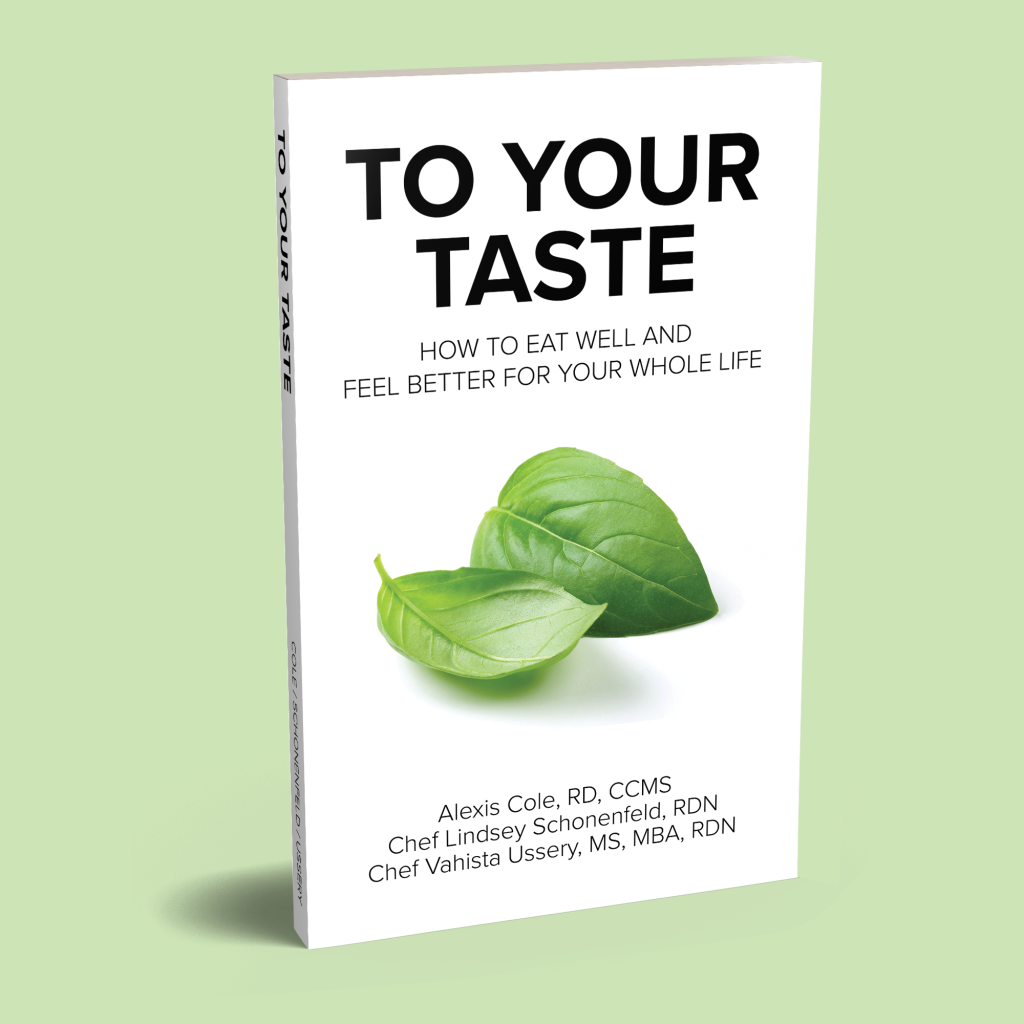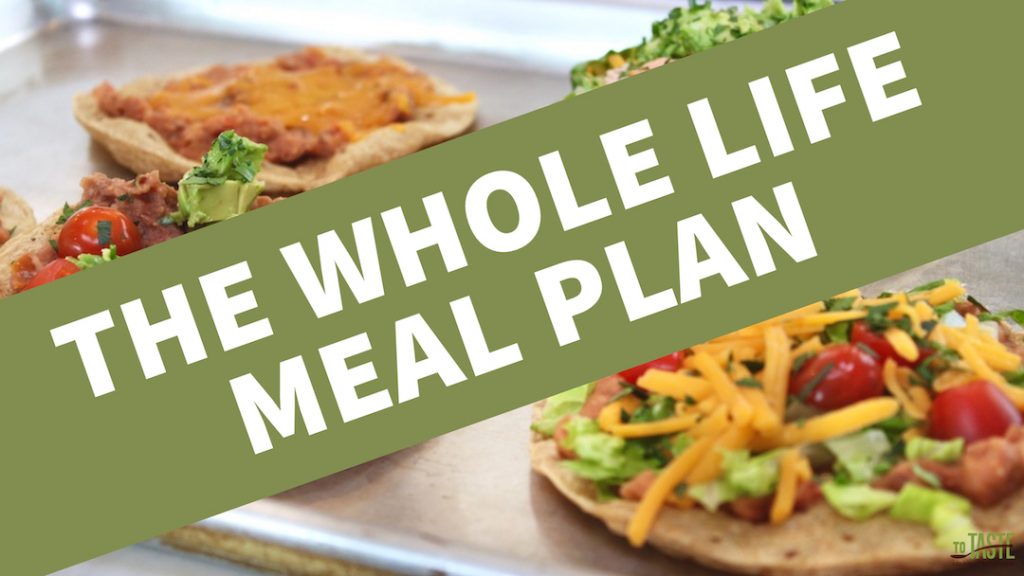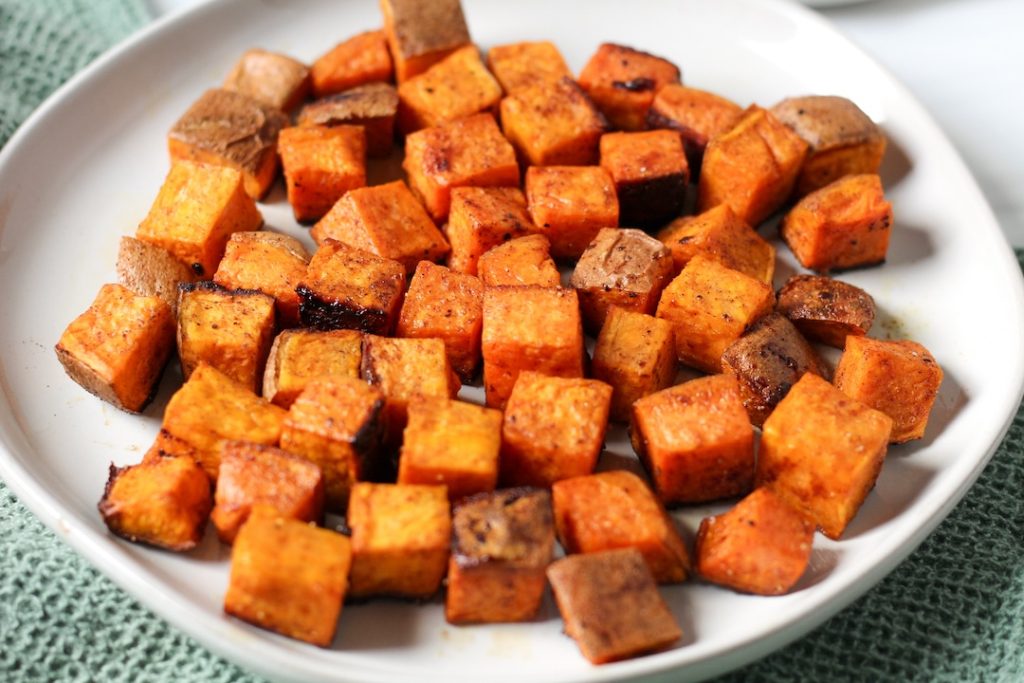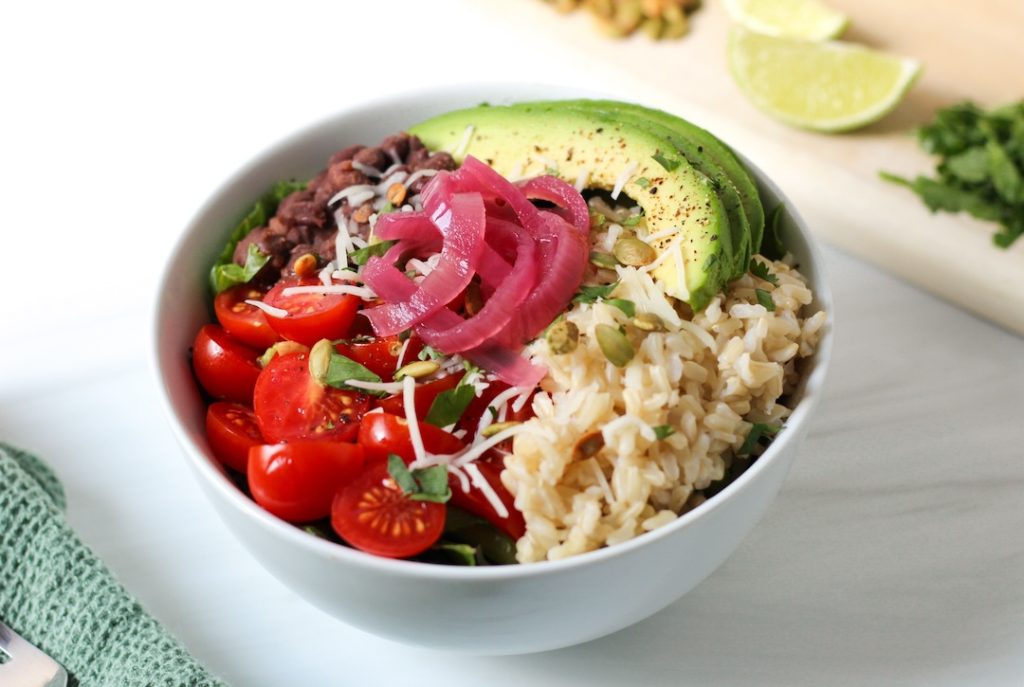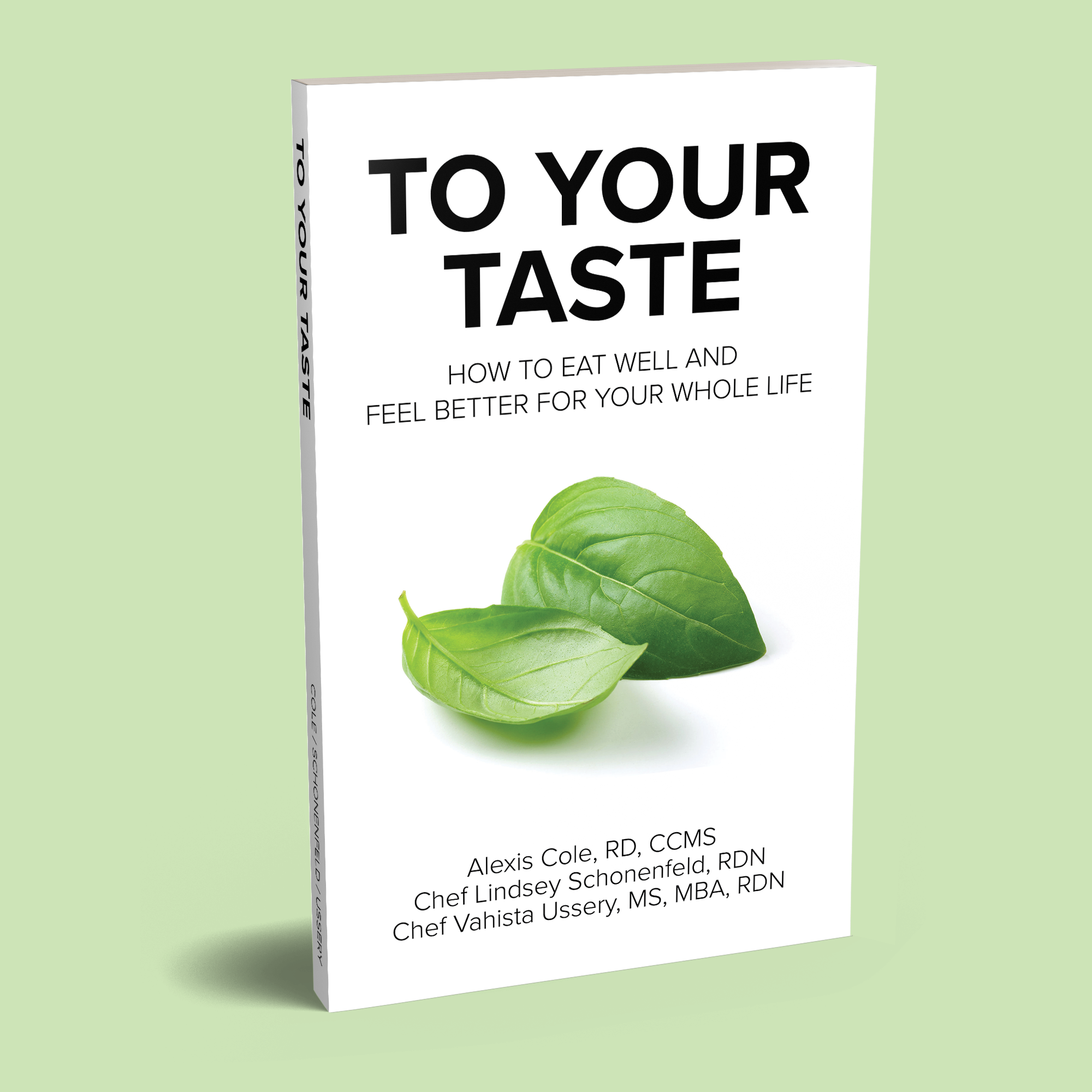This is a variation of our pesto base recipe. While you can definitely purchase store-bought pesto, nothing beats making it fresh! Basil is in season during the summer, so that’s the best time to make this easy pesto recipe. Basil pesto is great on pasta, vegetables, and fish and is an easy, healthy, and delicious sauce to make and have on hand!
Three Must-Know Cooking Skills
For recipe success, learn how to:
Toast Nuts in the Oven
Measure Wet vs. Dry Ingredients
Crush Garlic
Culinary Tips for Making Pesto
When measuring the greens, gently pack them into the cup, but don’t pack so much that the leaves fall out of the cup.
Depending on the size of your food processor or blender, you might need to double the recipe. The jar/bowl needs to be full of enough ingredients to properly blend.
Be careful with the amount of fresh garlic you use – it has strong flavor! It’s better to start with less and then add more to taste.
Process until you reach your desired texture. For a smooth and creamy pesto sauce, process for longer.
Different pesto recipes may have slightly different ratios, but the ingredients will generally be the same: greens, olive oil, nuts, cheese, garlic, and salt.
Ingredient Substitutions
- Basil: substitute some of or all of the basil with any greens of your choice (spinach, arugula, kale). Greens such as mustard greens, arugula, swiss chard, and beet greens have a stronger taste, so consider using a milder green, such as spinach, for half of the recipe. You can also add green herbs such as fresh dill, mint, parsley, or cilantro. Keep in mind the flavor profile of the dish you’ll be making when choosing the herbs.
- Extra Virgin Olive Oil: substitute infused extra virgin olive oil or avocado oil. We don’t recommend using vegetable oil, as this is not a heart-healthy oil. If you want to enhance the pesto with a strongly flavored oil, such as walnut or truffle oil, use extra virgin olive oil as the base, then add the strong oil a little at a time, to taste.
- Parmesan: substitute Pecorino Romano, asiago, or aged cheddar. We think that cheese blocks taste best, but we recognize the convenience of using pre-shredded cheese.
- Pine Nuts: make this pesto recipe without pine nuts by substituting walnuts, cashews, pecans, or almonds. Increase quantity to 1/2 cup if using larger nuts. We don’t recommend using peanuts in pesto, as they have a very distinct flavor.
- Garlic: substitute ½ teaspoon garlic flakes, ¼ teaspoon granulated garlic, or ⅛ teaspoon garlic powder.

We love getting our oil and vinegar from Enzo’s Table. Click on the picture below to try out dozens of different oils, vinegars, and more!

Recipe Variations
To reduce the pungency of the garlic, roast it in the oven for a few minutes with its peel on. Remove peel after roasting.
For a more complex flavor, toast the pine nuts in a skillet before adding them to the blender.
Add lemon juice and/or zest to brighten the flavor.
To make this pesto recipe vegan, leave out the cheese. To maintain some of the umami flavor, add 1 Tablespoon of nutritional yeast.
Need some pesto recipe inspiration?
Are you nuts for pesto too? Use our base recipe to make it your own, or try out these other variations!
Equipment Recommendations
Use these kitchen tools for pesto recipe success!
Health Benefits of Homemade Basil Pesto
Learning how to make pesto sauce from scratch is a great way to expand your culinary horizons! Pesto is a healthy sauce/dip/spread that can boost the nutritional quality and flavor of a dish. The featured ingredients in this recipe are basil, pine nuts, and extra virgin olive oil.
Basil
Green herbs, like basil, not only add a pop of freshness and great flavor to a dish, but they add nutrition too! Herbs are rich in essential vitamins, minerals, and phytochemicals that promote health and help fight diseases. Blending basil into a healthy pesto recipe is an easy way to help promote your health.
Pine Nuts
Nuts of all varieties contain plant-based protein, fiber, and healthy fats. These nutrients promote heart health and help you feel satisfied until your next meal.
Extra Virgin Olive Oil
Extra virgin olive oil is a key component of the Mediterranean Diet. It contains high amounts of heart-healthy monounsaturated fatty acids and polyphenols which may reduce inflammation. Additionally, certain nutrients require fat for absorption; using extra virgin olive oil in pesto can boost the nutritional quality of a dish. (1, 2)
Serving Suggestions
Serve pesto on top of fish, tossed in a grain salad, combined in meatballs or burgers, as a sauce for pizza, or mixed in with noodles to make pesto pasta. These are some of our favorite recipes with pesto, but use your creativity to use it in whatever dish sounds delicious to you!
Storage Recommendations
Pesto oxidizes in the refrigerator which turns its beautiful bright green color to olive green. This doesn’t necessarily affect the flavor – it just doesn’t look as pretty! To help preserve some of the color, drizzle olive oil on top of the pesto before refrigerating. Alternatively, cover the pesto with plastic wrap and let it touch the surface so that it doesn’t have any contact with the air.
Pesto also freezes well. For easy use and thawing, freeze pesto in small servings (a silicone ice tray is great for this). When ready to eat, simply pop one or two cubes out, thaw, and use as normal!
Want more tasty sauce recipes?
Try out these tried and true recipes!
Basil Pesto
Ingredients
- 2 cups packed fresh basil leaves (~1 ½ ounces)
- ½ cup extra virgin olive oil
- ½ cup shredded parmesan
- ¼ cup pine nuts
- 1 medium garlic clove
- Salt & pepper to taste
Instructions
- Place basil, oil, parmesan, pine nuts, and garlic in a blender and puree until fairly smooth. Season to taste with salt and pepper.
- To store, pour into a container and top with a little extra virgin olive oil to keep your pesto nice and green. Enjoy!




